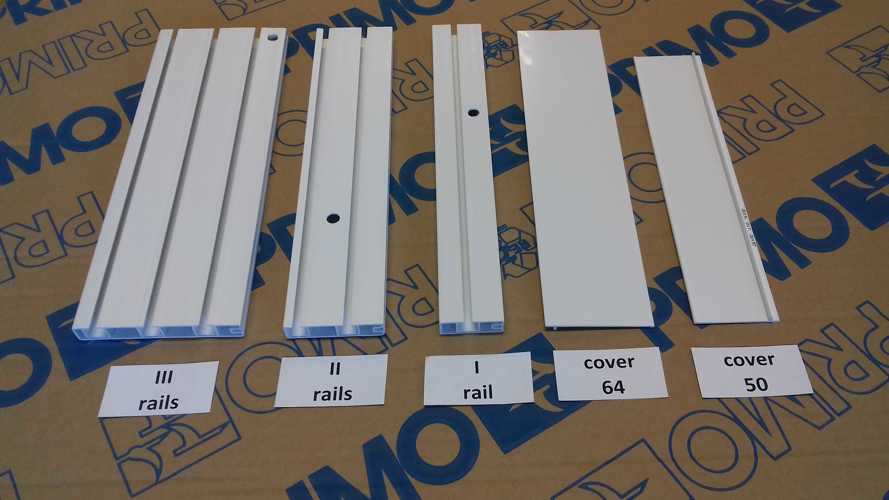Recycling plastics at an industrial scale
At Primo's production facility in Poland, various profiles for window decorations are manufactured in close corporation with customers. A popular series is cover profiles for curtain rails, which has been produced for 15 years – and today these products are made solely from reused scrap plastic.

For businesses in all areas, being first movers with innovative and sustainable products becomes ever more critical. Today, it is possible to produce plastic products from 100% recycled materials with only minor deviances from the traditional product, and Primo's development of a sustainable curtain rail cover system is a good example.
Business Area Manager Marek Wojciechowski at Primo Profile Sp.o z o.o. says:
"Our ceiling rail covers show how much we care about the use of post-production scrap. For this system, we only use scrap that comes from the production of other profiles. The challenge is to meet the requirements for profiles, as we want the product to fulfill its function and to be made from post-production scrap to as large an extent as possible."
Quality and sustainability go hand in hand
The systems consist of 10 profiles - each of them separated into five different sub-profiles that constitute one system. They are 99% white, although each system has a different shade. The customer is a company supplying DIY-supermarkets with ceiling curtain rail systems for homes and businesses.
"At Primo, we pay much attention to environmental protection. When we started producing ceiling curtain rail systems 15 years ago, we manufactured them from new material. We quickly realized, however, that for environmental reasons, it would be good to use the waste generated in the production of the curtain rails in the first place," Marek Wojciechowski explains.
"It was obvious to us, though, that this could affect the quality of the manufactured ceiling curtain rods. It is important to note, though, that Primo accepts no quality reduction or deviation from the originally assumed quality without our partner's previous consent," he adds.
The initial recycling took place on the initiative of Primo and was presented to the customer as an opportunity. This was welcomed by the customer, who was able to accept a higher color tolerance, as the color obtained by using post-production scrap may vary from the original material. Furthermore, the customer viewed the benefit of being able to market their product as sustainable:
“Since the beginning of cooperation with Primo, it has been going on for over a dozen years, we have tried to build true partnership. We run our business based on social responsibility and always try to think about the environment. Therefore, we looked for a partner with a similar approach to doing business. Although the proposal to produce profiles from recycled material seemed difficult to implement, we decided to give each other a chance and take the subject seriously. The beginnings were difficult, but patience and determination allowed us to achieve our common goal. Today, we have the satisfaction that the profiles we supply to the market are manufactured primarily from recycled material, thus contributing to environmental protection. We recommend looking for such solutions as our example proves it can be achieved,” says Wojciech Korytkowski, owner of the company PPHU Karten-Tech in Poland.
New products made from 100% scrap
"We had prepared samples of curtain rails with a greater color discrepancy than was adopted at the time of establishing cooperation and subjected them to client's analysis. After several meetings, we achieved a compromise and got the client's green light to using post-production scrap. It is due to our partner's care for the environment that we are able to manufacture these products without any loss to the environment," says Marek Wojciechowski.
Today, Primo reuses all waste from the production of ceiling curtain rails. This makes it possible to deliver a product that consists of 100% recycled scrap.
The next challenges are to reuse the actual product after years of use. No such system has been organized yet, but the technology and know-how are established.
"It is crucial for us to raise awareness about the importance of caring for the environment in the context of using post-production waste. We would also love to take back used curtain rails when the products are no longer used for recycling. It is something we give serious consideration to, but it is anew level of recycling, that is not implemented yet."
About Primo
Headquartered in Copenhagen, Denmark, Primo A/S operates 12 sales and production sites across Europe, China and the USA. Founded in 1959 by the Grunnet family, Primo specializes in custom-designed plastic profile solutions. The company employs around 1000 people and reported a turnover of 180 million EUR as of December 31, 2024.